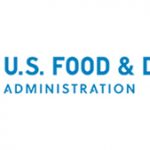The FDA has issued a new guidance for industry that describes how firms can voluntarily engage with the FDA before marketing food from genome-edited plants. The guidance reaffirms that the risk-based approach the FDA has taken for foods derived from new plant varieties also applies to foods from genome-edited plants. In addition, the guidance describes two processes through which companies may voluntarily inform the FDA of the steps they have taken to ensure the safety of foods from their genome-edited plant varieties. These include voluntary premarket consultations and voluntary premarket meetings. These processes are designed to help ease the pathway to market for foods from genome-edited plants, while keeping FDA safeguards in place.
The voluntary premarket meeting pathway is recommended for developers to inform the agency of their foods when a voluntary premarket consultation is not warranted based on the food’s risk-based characteristics. The agency expects this voluntary premarket meeting pathway to take less time than a voluntary premarket consultation. The FDA continues to suggest voluntary premarket consultations for foods that have certain risk-based characteristics, which are described in the guidance and include:
- Modifications to endogenous genes that create significant homology to a known allergen that is relevant to human health or a toxin that is relevant to human or animal health.
- Modifications that cause a non-negligible increase in levels of potentially harmful components, including toxicants, allergens, anti-nutrients, and other components that can exhibit non-nutritive physiological effects on humans or animals.
- Modifications that cause a non-negligible change in the nutritional value (level of nutrient and/or bioavailability) of the food.
- Modifications that result in the food containing, at a nutritionally meaningful level, a nutrient found at negligible levels in food from its traditional counterpart.
- Modifications that result in nutritionally meaningful reductions to the levels of nutrients.
- Modifications that result in increases to the levels of nutrients such that a safety concern may be raised.
- Modifications that introduce nutrients to the food that are limited by regulation in similarly used foods.
- Modifications intended to change the fatty acid profile of the food.
- Modifications expected to affect the bioavailability of nutrients in the food.
A key purpose of the new guidance is to clarify how FDA’s policy statement “Statement of Policy: Foods Derived from New Plant Varieties” (NPV policy) applies to foods derived from new plant varieties produced using genome editing. The NPV policy provides scientific and regulatory guidance on foods from new plant varieties and lays out broad, risk-based principles for ensuring the safety of foods from new plant varieties. The guidance explains that the principles outlined in the NPV policy apply to foods from genome-edited plant varieties.
The guidance also reminds developers of new plant varieties of their obligations under section 403(w) of the Federal Food, Drug, and Cosmetic Act (FD&C Act), which was enacted after the issuance of the NPV policy.






